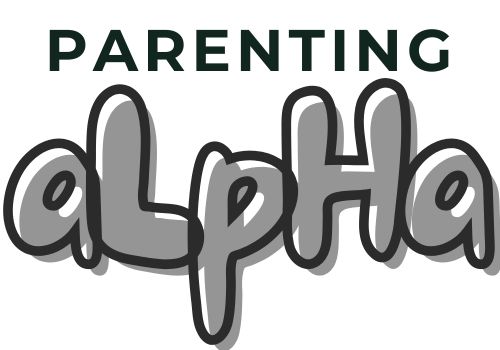Authoritarian parenting is a style of parenting characterized by high levels of control, strict rules, and little to no room for flexibility or negotiation. There is always little to no input from the child.
The authoritarian parent is often very strict and enforces rules with an iron fist. Children raised in an authoritarian environment may be punished harshly for even minor infractions. The consequences of breaking the rules for these children are often severe.
Compared to other parenting styles, such as authoritative, permissive, neglectful and helicopter parenting, authoritarian parenting is characterized by low levels of warmth and communication.
In this article, we will explore its effects on children, and how it differs from other parenting styles.
Effects on Children:
The effects of authoritarian parenting on children can be profound. Children raised in an authoritarian environment may become anxious and depressed. Afterall, they are constantly living in fear of breaking the rules or displeasing their parents.
They may struggle with self-esteem and have difficulty expressing their feelings and opinions.
In addition to emotional effects, authoritarian parenting can also have negative effects on a child’s behavior. Children raised in an authoritarian environment may become rebellious, as they feel stifled by the strict rules. They feel the lack the freedom they deserve.
They may also struggle with social skills, as they may not have had the opportunity to develop them in a more relaxed environment, at home.
The most common reasons why parents become authoritarian:
There are many reasons why parents may become authoritarian. Some parents may adopt this style because they believe it is the most effective way to raise well-behaved and successful children.
The following are just a few notable explanations:

1. Cultural Influences:
Some cultures place a high value on obedience and respect for authority figures. Parents who come from these cultures may feel it is their duty to raise their children in an authoritarian manner.
2. Fear of Failure:
Some parents become authoritarian because they are afraid of failing as parents. They believe if they are not strict enough, their children will not be successful in life.
3. Lack of Knowledge:
Some parents simply because they do not know any other way to parent. They may not have had good role models growing up or may not have access to resources that teach them effective parenting techniques.
4. Personal Struggles:
Some parents are victims of personal struggles they are going through. For example, a parent who is dealing with a lot of stress at work may become more authoritarian at home as a way to exert control over their environment.
5. Control Issues:
Some parents may have control issues. They may feel the need to control every aspect of their child’s life as a way to feel more in control of their own life.
Other parents may have grown up in authoritarian environments themselves and may not know any other way to parent.
How Authoritarian Parenting Differs from Other Parenting Styles:
There are four main types of parenting styles: authoritarian, authoritative, uninvolved, and permissive. Sometimes, helicopter parenting is also listed under this category.
Authoritarian parenting differs from the others in several key ways.
Authoritative parenting is characterized by a balance between rules and flexibility. Parents who use an authoritative style are firm but fair. They encourage open communication with their children.
Children raised in an authoritative environment tend to be confident and independent, as they are given the opportunity to make choices and express their opinions.
Permissive parenting, on the other hand, is characterized by a lack of rules and structure. Parents who use a permissive style are often very relaxed and may allow their children to do whatever they want.
While this style can be beneficial in some ways, such as fostering creativity and independence, it can also lead to children who are spoiled and entitled.
Permissive parents often let their children do whatever they want, without setting clear boundaries or expectations. They may be hesitant to say “no” to their children, and may give in to their children’s demands in order to avoid conflict.
This parenting style can lead to children who have difficulty with self-discipline and self-control, as they have not been taught how to regulate their own behavior. Permissive parenting can also lead to children who struggle with social skills, as they may not have learned how to navigate social situations or respect others’ boundaries.
In contrast, authoritarian parenting is characterized by a strict adherence to rules and little to no input from the child. While this style can be effective in some situations, such as when a child’s safety is at risk, it can also lead to negative outcomes for the child.
What experts have to say to authoritarian parents:
Authoritarian parenting can have negative effects on children, both in the short and long term. Children who grow up in an authoritarian environment may struggle with self-esteem, have difficulty making decisions. They may be more likely to engage in risky behavior.
Here’s what experts say:
1. Focus on Positives:
Reinforcement: Rather than using fear and punishment as a way to control behavior, experts recommend using positive reinforcement to encourage good behavior. This can include praise, rewards, and recognition.
2. Set Clear Boundaries:
It’s important for parents to set clear boundaries and rules for their children. However, these boundaries should be set in a way that is respectful and allows for open communication between parent and child.
3. Encourage Independence:
Authoritarian parents may have a tendency to micromanage their children’s lives. Experts recommend encouraging independence and allowing children to make their own decisions whenever possible.
4. Practice Active Listening:
Active listening is an important part of effective communication between parents and children. This involves really hearing what your child has to say and showing empathy and understanding.
5. Seek Professional Help:
If you’re struggling with authoritarian parenting and are finding it difficult to make changes on your own, it may be helpful to seek the support of a professional. A therapist or counselor can help you develop more effective parenting strategies and work through any personal struggles that may be contributing to your challenges.
Experts recommend that authoritarian parents focus on positive reinforcement, set clear boundaries, encourage independence, practice active listening, and seek professional help if necessary.
By adopting a more balanced and effective parenting style, they can help their children thrive and grow into healthy, confident adults.
Conclusion
In conclusion, authoritarian parenting is a style of parenting that is characterized by high levels of control and strict rules. While this style can be effective in some situations, such as when a child’s safety is at risk, it can also have negative effects on a child’s emotional well-being and behavior.
Parents who use an authoritarian style may want to consider adopting a more authoritative approach, which balances rules and flexibility and encourages open communication with their children.





Leave a Reply